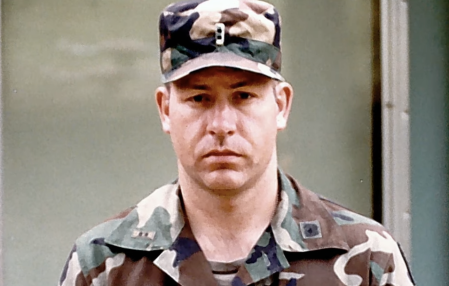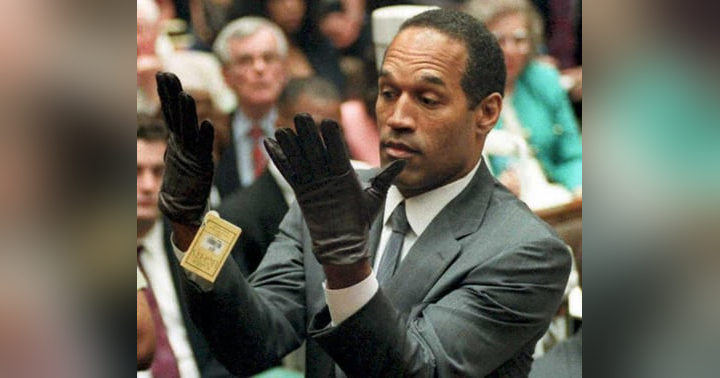Robert Lee Yates: The Decorated Soldier Who Hunted Women for Sport

Robert Lee Yates was the kind of soldier you'd want watching your back in a combat zone. Decorated helicopter pilot, respected by his peers, trusted with the most dangerous missions. But back home in Spokane, Washington, this war hero was living a completely different kind of double life. One that would cost sixteen women their lives and fool an entire community for over two decades. This is the story of how America's most unlikely serial killer hid in plain sight.
When War Heroes Hide Dark Secrets
Robert Lee Yates was born in May 1952 into a family that probably should have come with a warning label. Seven years before Robert even took his first breath, his grandmother had already set the family tone by murdering his grandfather with an axe. So you know, typical Tuesday in the Yates household.
But the real psychological foundation for Robert's future came from his mother, who took religious discipline to Olympic levels. Experts would later describe their relationship as profoundly unusual, which is academic speak for "deeply messed up." Add to that an alleged molestation when Robert was six, and you've got a recipe for disaster that's been slow-cooking for decades.
The All-American Success Story That Wasn't
Robert graduated high school and headed off to university like any normal kid. But college life apparently wasn't his vibe, so he dropped out, married his girlfriend, and joined the army. The marriage lasted eighteen months, which honestly sounds about right for someone who makes life-altering decisions on a whim. The military career, however, stuck around for over two decades.
Here's where the story gets genuinely bizarre. Robert wasn't a washout soldier. He was actually phenomenal at his job. He became a decorated former military helicopter pilot who served in Germany, Somalia, and Haiti during United Nations Peacekeeping Missions. His tours earned him an Armed Forces Expeditionary Medal, and his Chief Warrant Officer, Jay Enders, couldn't stop praising him.
"It's real gutsy," Jay explained about Robert's service. "He would go out there and look for the enemy with no weaponry. Yates was a true professional when he was out here, very proficient."
So we're talking about a guy who was literally flying into danger zones, getting medals for bravery, and earning respect from his superiors. Meanwhile, he was developing what you might call some very different extracurricular activities.
The Night Everything Changed
When Robert finally returned to American soil permanently, he couldn't shake the military life and joined the National Guard. By this point, he'd remarried and had five children. To everyone around him, he looked like the definition of a successful family man. But that facade was covering up something that had started decades earlier.
The first murders happened in 1975, and they were absolutely random. Robert was heading home from target practice, still carrying his gun, when he crossed paths with twenty-one-year-old Patrick Oliver and his twenty-two-year-old girlfriend, Patricia Savage. These college students were having a picnic together when Robert decided to completely derail their lives.
He shot Patrick first, then turned his attention to Patricia. Both were killed, and with those deaths, Robert discovered something about himself that would define the next twenty-five years of his life.
The Development of a Killer's Pattern
After those initial murders, Robert established what became his signature approach. He primarily targeted sex workers who struggled with substance abuse issues. He would cruise Spokane's red light district, solicit services, and drive his victims to remote locations.
His method was consistent and calculated. He would cruise a well known prostitution strip just a short drive from his average suburban home, seeking out vulnerable women. Once alone with them, Robert would usually use drugs with his victims before assaulting them. He would then shoot them in the head and sometimes assault their bodies again before dumping their remains in secluded areas.
But what made Robert particularly disturbing was his calling card. Most of his victims would be found with multiple layers of plastic grocery bags wrapped around their heads. Investigators later determined these bags weren't part of the murder method, they were Robert's signature. His way of telling law enforcement and the public that Spokane's "Grocery Bag Killer" had struck again.
The Victims Who Broke the Pattern
Among Robert's many victims, some stood out for heartbreaking reasons. Jennifer Ann Joseph was only sixteen years old when her parents' divorce sent her life spiraling. She dropped out of high school, ran away from home, and ended up working on the streets while using methamphetamine. Within a month of this lifestyle, she was dead.
She was last seen getting into a van with an older gentleman before a farmer found her remains under one of his pine trees, over twelve miles away. Jennifer's case would eventually become the key to Robert's downfall.
Then there were thirty-nine-year-old Shawn Ann McClenahan and thirty-one-year-old Laurie Page Wason. Both women were discovered together in a gully in the Spokane forests, their heads wrapped in plastic grocery bags before being shot twice and dumped. After these murders, the plastic bag signature became Robert's consistent trademark.
Not all of Robert's victims fit his usual pattern. Twenty-four-year-old Melinda Mercer had no criminal record and worked as a waitress when she encountered Robert. He wrapped her head in four layers of grocery bags before shooting her multiple times in the head. But Melinda was a fighter. Even mortally wounded, she managed to chew through two layers of plastic bags before succumbing to her injuries.
The Tragedy of Connie LaFontaine Ellis
Connie's story represents the kind of profound tragedy that shows how life can systematically break someone down. She lost one infant son to SIDS, which is devastating enough for any parent. But then she lost another son at eleven years old while he was waiting for a heart transplant. Her father later said that losing her second child completely destroyed Connie and sent her into a downward spiral that led to drugs, then prostitution, and finally to becoming one of Robert's victims.
The Investigation That Finally Caught Him
It took until 2000 for law enforcement to finally catch Robert, but when they did, it was Jennifer Joseph's murder that provided the breakthrough. Robert became a suspect when both he and his car matched witness descriptions from people who had seen Jennifer getting into his vehicle.
The timing worked against Robert because he was away on a National Guard mission when investigators began connecting the dots. But when he returned, they put him under twenty-four-hour surveillance. On the morning of April 18, 2000, at 6:30 AM, police officers pulled over a car heading north on Market Street in Spokane. Yates was arrested.
The evidence against Robert was overwhelming once investigators searched his car. They found Jennifer's earring, which placed her in his vehicle. But the DNA evidence was what sealed his fate. Blood samples from his car matched Jennifer Joseph and twelve other victims.
Earlier, on September 19, 1998, Yates was asked to give a DNA sample to Spokane police after being stopped. He refused, stating that it was too extreme of a request for a "family man". That refusal probably seemed reasonable to him at the time, but it became another piece of evidence pointing to his guilt.
The Plea Deal and Its Consequences
Robert pleaded guilty to 13 murders, taking a place among the nation's most prolific serial killers. The Army veteran and helicopter pilot also pleaded guilty to one count of attempted murder as part of a deal to escape the death penalty. He even took police to previously undiscovered graves, showing a level of cooperation that probably saved his life.
His sentence was 408 years in prison, which sounds excessive until you remember that thirteen families lost loved ones because of his actions. But Spokane wasn't the only jurisdiction with a bone to pick with Robert.
Pierce County Wasn't Having It
A year later, Pierce County brought separate charges for the 1997 and 1998 murders of Melinda Mercer and Connie LaFontaine Ellis. Pierce County had made no deals with Robert and were actively seeking the death penalty for murders that occurred on their territory.
Robert fought these charges hard. He argued that his plea deal with Spokane should apply to Pierce County as well, but the courts disagreed. When that approach failed, his defense team switched strategies and argued that Robert was not guilty by reason of insanity.
According to his lawyers, Robert "through no fault of his own suffers from a severe paraphilic disorder" that essentially compelled him to commit murders. Pierce County Prosecutor Mark Lindquist had a pretty direct response to this defense strategy: "I don't think Mr. Yates helps his cause by relying on the fact that he's a necrophiliac."
The courts agreed with Lindquist and upheld Robert's death sentence. But in 2018, Washington State ruled the death penalty unconstitutional, and Robert's sentence was commuted to life in prison along with all other death row inmates.
The Lasting Impact
Robert Lee Yates represents one of the most perplexing cases in American criminal history. Here was a man who could fly helicopters into combat zones, earn medals for bravery, and maintain the respect of his military colleagues while simultaneously hunting and killing vulnerable women in his spare time. In the record books, Yates is linked with the murders of sixteen victims. The majority of these victims were female sex workers, people who operated on the fringes of society.
The case raises uncomfortable questions about how well we really know the people around us. Robert's neighbors, fellow soldiers, and even his family had no idea about his double life. He managed to compartmentalize his existence so completely that he was literally receiving military commendations while committing serial murders.
Today, Robert Lee Yates sits in prison, where he'll remain for the rest of his natural life. The families of his victims continue dealing with losses that can never be repaired, and the Spokane community still grapples with how someone so seemingly ordinary could cause such extraordinary devastation.
The grocery bags that became his signature weren't about the murders themselves, they were about recognition. Robert wanted credit for his crimes, wanted law enforcement and the public to know when he had struck again. In the end, that need for recognition became part of what led investigators to him, proving that even the most calculated killers eventually make mistakes that bring them down.




